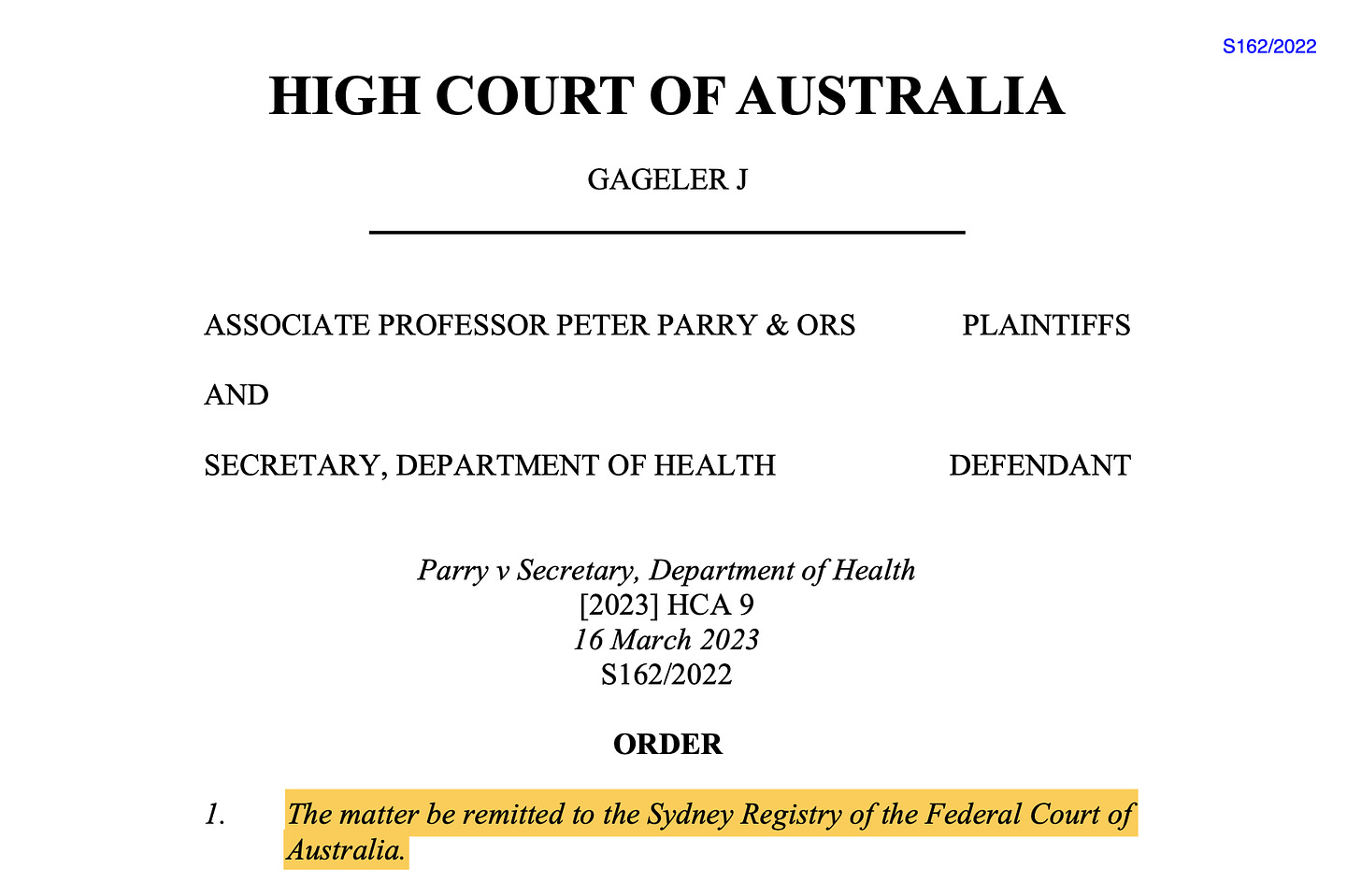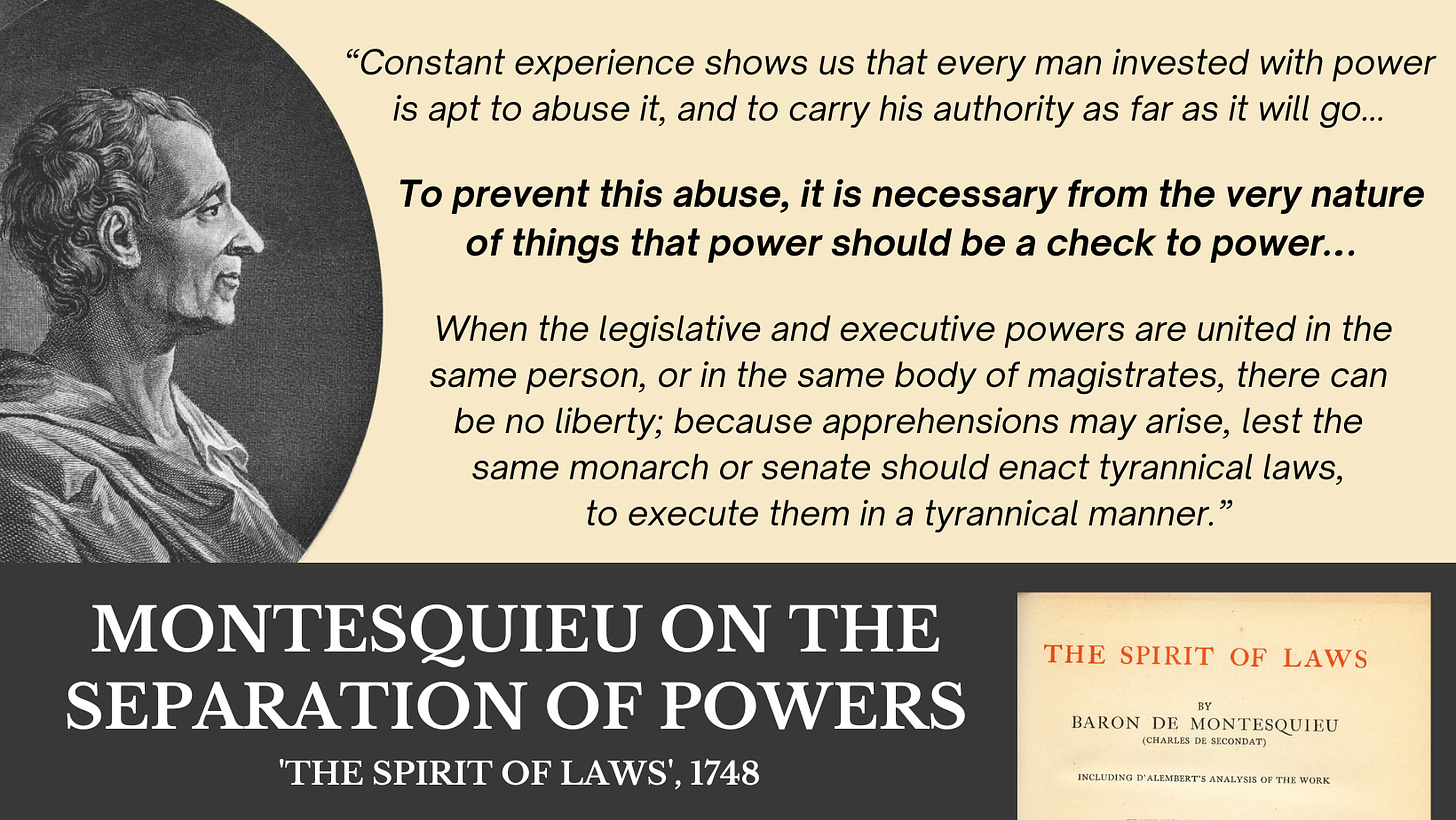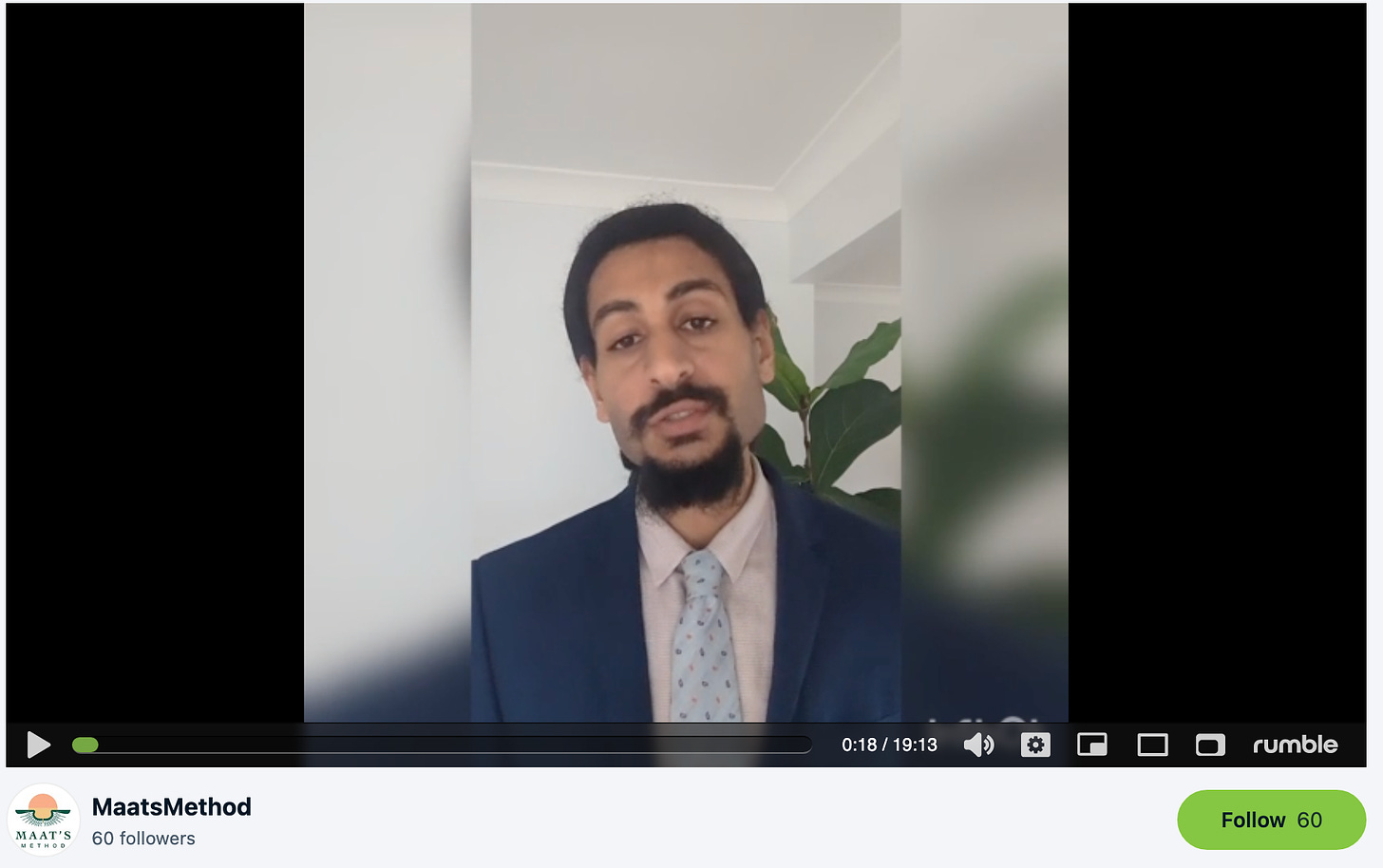The case was brought to the High Court to stop ‘the greatest iatrogenic catastrophe in Australia’s modern history.’
In an unprecedented move, the High Court of Australia has refused to hear a case, without discussion or negotiation. The Australian Babies Case was filed in the High Court on 21 December 2022, with the intention of stopping the Therapeutic Goods Administration’s (TGA) provisional approval of Moderna for use of its product SPIKEVAX in babies and toddlers aged six months to five years old in Australia.

However, on 16 March 2023, the High Court revealed its in-chambers1 decision to remit the case down to the Federal Court. TheJustice reasoned that hearing the case in the High Court would, “unduly divert the Court from its principal functions.”2

A call to protect Australian babies
The premise of the Australian Babies Case was that the provisional approval of Moderna’s SPIKEVAX for babies and toddlers aged six months to five years old was unlawful and unsafe. Therefore, the approval should be revoked immediately so as to, stop “the greatest iatrogenic catastrophe in Australia’s modern history.”
Instructing solicitors, Peter Fam of Maat’s Method and Katie Ashby-Koppens of PJ O’Brien & Associates, working alongside former barrister and legal consultant for the applicants, Julian Gillespie, were confident in the case, securing almost $500,000 in funding to bring it to the High Court.
At the time of filing, Gillespie announced, “The High Court of Australia is now being called upon to protect our youngest from participating in an acknowledged and ongoing Phase III clinical trial, to receive experimental drugs involving unprecedented levels of reported adverse events, including deaths … for a virus also acknowledged to pose no threat to our babies and toddlers.”
Admission in the High Court that Moderna SPIKEVAX was unlawfully granted provisional approval would set a precedent for further challenges over Covid vaccine approvals in the Federal Court. Moreover, it would open the government up to legal challenges of liability over injuries and deaths, an outcome that would be beneficial to the Australian public, but undesirable for the government and its top-ranking officials.
Preserving human life is the ultimate special interest
In the lead up to filing the case, the legal team had two concerns. First, that the Court would determine that the applicant did not have ‘standing.’ In Australia, only an applicant with ‘standing’ can bring a case to court. This means that the applicant needs to demonstrate that they have a ‘special interest’ in the matter, and that they are ‘a person aggrieved’ by the court decision.
Fam, Gillespie, and Ashby-Koppens had previously had a case rejected by the Federal Court on the basis of standing. The AVN Case, which sought to quash the decision to allow administration of the Pfizer vaccine to children aged five to 11, was dismissed because Justice Melissa Perry determined that the applicants (The Australian Vaccination-risks Network, and Mark Neugebauer, foster father to a child who was required by the Department of Child Protection to be vaccinated for Covid) did not have standing. This was a surprising decision given the two applicants’ special interest in the matter.3
In the Australian Babies Case, the legal team carefully considered which applicants would have the best standing. It was decided that the applicants should be four medical experts, as medical experts have a special interest (ethical, legal, professional, reputational) in ensuring that the medical advice they give to patients is sound.4 In summary, the legal team argued that the applicants had standing because, “an interest in preserving human life is the ultimate special interest.”
As it turned out, the issue of standing did not obstruct the Australian Babies Case.
Denied procedural fairness
The second concern was that the highly technical nature of some of the evidence would prove off-putting to the High Court, and that they would therefore seek to remit the case down the Federal Court. “We knew the case was controversial, and that the High Court might not want to go there,” says Fam. In anticipation of this scenario, the legal team had a backup plan. “We would have said, no problem, don’t remit the case, we’ll cut out the scientifically technical information.”
However, the High Court did not allow the applicants this opportunity. Instead, JusticeStephen Gageler made the in-chambers decision to send the case down to the Federal Court, ensuring that none of the evidence would be presented in the High Court. “The typical process is to at least appear once before the Court to discuss the case,” explains Fam. “They didn’t even let us appear. I think that they have denied our applicants procedural fairness.”
The decision to remit the case to the Federal Court is a huge disappointment to the legal team, who have been working on the case for the best part of ten months. “The High Court sought to protect [Secretary of the Department of Health] Brendan Murphy, and in doing so, they turned their backs on Australian babies,” says Gillespie.
Federal Court a dead end
The Australian Babies case will not go forward, as the legal team considers the Federal Court to be a dead end. “We saw the way that the Federal Court dealt with the evidence in the AVN matters throughout 2022,” says Gillespie, who believes that, in dismissing the case, “the Federal Court purposely avoided hearing the evidence.” Furthermore, hearing the case in the Federal Court opens up the prospect of repeated appeals, which could be drawn out, excessively costly, and result in the overturning of a favourable decision.5
Separation of Powers

Traditionally, the powers of the government and the judiciary ought to be separate to protect the public against tyranny. The remittance of the Australian Babies Case, when taken with the dismissal of the AVN Case and numerous Fair Work losses such as the Sydney Trains appeal is suggestive that the Australian justice system is working to protect the government, not the people.
Arkmedic documents in detail the way in which the Fair Work Commission in particular has become a tool of the state, drawing a parallel with the Nazification of the German judicial system during the Third Reich.
Gillespie asserts that the separation of powers doctrine in Australia has been “snuffed out,” allowing “illegitimate acts of government” to prevail. Nevertheless, this is not defeat.
Gillespie has an air of dogged determination, propelled by the palpable sense of hope that naturally emanates from people who are running on the strength of deep moral conviction. “We are not lost, no matter how lost our courts and corrupted government have become,” says Gillespie, and here he speaks for all who have felt betrayed by the shredding of the social contract in these strange and trying times.
A pivot, not a retreat
The team of Peter Fam, Katie Ashby-Koppens and Julian Gillespie have no intention of quitting. From here, they are turning their attention to the next case, which they consider to have better prospects of success than the Babies Case would have in the Federal Court. The matter will be announced imminently.
For now, Gillespie offers an exhortation.
“Do not be crushed. More is afoot, and many are working on this other solution.”
- 1 From Wikipedia, emphasis mine: “An in-chambers opinion is an opinion by a single justice or judge of a multi-member appellate court, rendered on an issue that the court’s rules or procedures allow a single member of the court to decide. The judge is said to decide the matter “in chambers” because the decision can be issued from the judge’s chambers without a formal court proceeding.”
- 3 Neugebauer and his wife foster two children. The child subject to the DCP’s recommendation of vaccination was aged seven at the time of filing, and had been in the Neugebauers’ care since he was two days old. The Neugebauers have committed to his care for the entirety of his childhood, into adulthood. Further, as a foster parent, Mark Neugebauer is a Mandated Notifier, meaning that he is obligated to report any potential risk of harm to authorities.
- The Australian Vaccination-risks Network (AVN) has been Australia’s peak pro-choice vaccine information and advocacy group for almost 30 years, yet the Judge decided that they don’t have a special interest in the provisional approval of the most controversial vaccine ever.
- 4 The applicants for the Australian Babies Case were:
- Associate Professor Peter Parry (Paediatrics and Psychiatry);
- Doctor Julian Fidge (General Practitioner and Pharmacist);
- Doctor Shoba Iyer (Geriatrics Specialist)
- Doctor Astrid Lefringhausen (Virologist)
- The AVN; and,
- Mark Neugebauer.
- 5 Watch Peter Fam’s full update on the discontinuation of the Australian Babies Case.

Source – https://rebekahbarnett.substack.com/p/high-court-turns-its-back-on-australian
